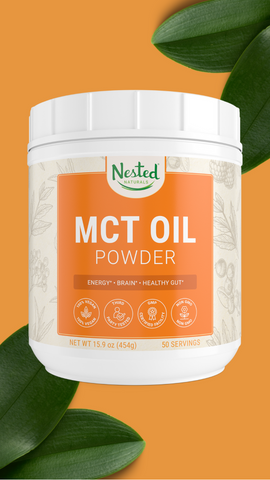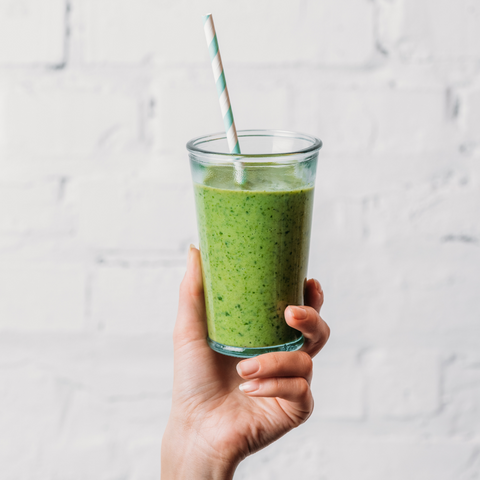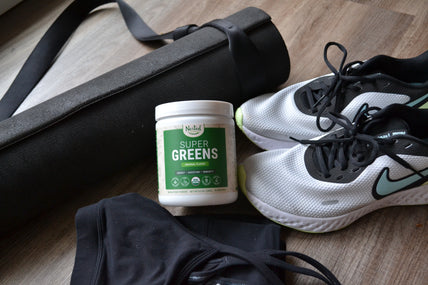Keto Diets & MCT Oil Powder

What’s the first thing you think of when you see “MCT” on a product label?
Some of us may already be familiar with MCTs, while others probably have no idea what these three letters stand for – let alone why they’re great, what health benefits they provide, or how they can sometimes be used alongside a ketogenic diet to help achieve ketosis.
What’s a Keto Diet?

A ketogenic (keto) diet is a very low-carb, high-fat diet which essentially turns the body into a fat-burning machine.
A ketogenic (keto) diet is a very low-carb, high-fat diet that essentially turns the body into a fat-burning machine.
It has many potential health benefits for weight loss, health, and athletic performance, and has also been shown to help with a variety of metabolic, neurological, and insulin-related diseases. Originally, this diet was used to treat epilepsy, due to the beneficial effects it can have on the brain.
A keto diet is designed specifically to result in ketosis: a natural metabolic state where fat provides most of the fuel for the body. To go into ketosis, people generally need to eat fewer than 50 grams of carbs per day (sometimes as little as 20 grams per day). The fewer carbs, the more effective.
Although no supplements are necessary for a keto diet, some can be beneficial – like MCT Oil Powder.
What’s MCT Oil?

C8 MCT oil is a super food for metabolism. Its chemical structure helps your body digest it quickly, sending it straight to the liver for burning. Rather than getting stored as fat, it turns into fuel.
MCT simply stands for medium-chain triglycerides (with triglycerides being a fancy term for “fat”). They’re sometimes also known as medium-chain fatty acids (MCFAs).
Most foods in the standard Western diet contain long-chain triglycerides (LCT), while MCTs are fats mainly found in foods like coconut oil/cream, butter (especially from grass-fed cows), cheeses, palm oil, whole milk, and full-fat yogurt.
The Benefits of MCT Oil Powder
For a long time now, the general public has been led to believe that all forms of saturated fats are potentially harmful. However, certain saturated fats like MCTs are in fact easier to digest than LCTs, and may actually have more benefits related to heart and brain health.
Here’s a list of some of the ways that MCTs can benefit you:
Helps improve energy levels
MCTs can be quickly metabolized into energy. Because of the shorter chain length of the fatty acids, MCTs are rapidly broken down and absorbed into the body, and are immediately transported from the small intestine to the liver – which quickly raises energy levels. Because the fatty acids are immediately broken down, they won’t be stored as body fat.
Good fuel for the brain

When the liver burns MCT oils, research suggests that it produces ketones that gives our brains the food it needs to think clearly.
MCTs produce ketones, which act as an alternative energy source for the brain. Ketones also help to activate proteins in the brain called brain-derived neurotrophic growth factors (BDNF), which work to repair, protect and enhance the function of brain cells.
Recently, studies have shown that MCTs may help to improve cognitive function, as well as learning, memory, and brain processing.
Has antibacterial, antifungal and antiviral properties
MCTs are powerful, natural antibiotics that help balance bacteria in your gut. Some bacteria that are known to be killed by MCTs are:
– streptococcus (which causes strep throat, pneumonia and sinus infections)
– straphylococcus (which causes food poisoning and urinary tract infections)
– neisseria (which causes meningitis, gonorrhea and pelvic inflammatory diseases)
– other strains that cause ulcers and sexually transmitted diseases

MCT oil added to things like smoothies or your morning coffee has been shown to help improve digestion and nutrient absorption. It’s naturally anti-microbial which helps balance the bacteria in the gut!
Besides bacteria, MCTs also help destroy viruses (like those which cause stomach viruses). They’re also known for their antifungal properties and can help an overgrowth of candida.
Decreases appetite and feelings of hunger
As part of a healthy diet, MCT oil can help increase satiety – so you automatically eat lower amounts of food. It does this by stimulating the production of two hormones that promote satiety: Leptin and peptide YY (PYY), which work by telling the brain that you are full.
Helps stabilize blood sugar levels
MCTs are also believed to help with blood sugar and insulin regulation.
One study found that the use of MCTs improved glucose metabolism in subjects, while another from the Indian Journal of Pharmacology revealed that the MCTs found in coconut oil may also help with improving glucose tolerance – which means that it may improve the body’s ability to process sugar into usable energy.
How To Take MCT Oil
MCT oil products usually come in either oil or powder form. Either form is great – though the powder is more convenient than oil, in that it’s a handy on-the-go option, easier to transport, and is more easily mixed into your recipes and drinks (no clumping, and won’t stick to the side of your blender).
While most people tolerate MCTs very well, taking too much too quickly may cause some to have gastrointestinal problems like nausea, diarrhea, or an upset stomach.
If this happens to you, don’t panic or give up on MCTs right off the bat. Begin with a single serving, and slowly increase as you develop a tolerance.
Can I take MCT oil powder even if I’m not on a keto diet?
Even if you’re on a regular or high-carb diet, you can still consume MCT oil powder. It can be used in baking and has even been known to improve the taste perception of meals.
Dave Asprey, the author of “The Bullet Proof Diet”, often combines carbohydrates such as sushi or rice with MCT oils. One advantage of doing this is that the body will have two different sources of energy: glucose and ketones. So you’ll still be able to reap the benefits of MCT oil powder even when consuming carbohydrates.
How To Add MCT Oil Powder To Your Cooking
Here are some ways for you to creatively mix MCT oil powder into your diet:
- Mix it into your morning coffee to start your day with an instant energy boost.
- Add it to shakes, smoothies, or yogurt (this helps stabilize your blood sugar since it slows down the rate that glucose and fructose sugar molecules are absorbed).
- Use it in homemade baked goods in place of coconut oil (sub out ⅓ of the coconut oil for MCT oil instead).
- You can even mix it into your sauces or soups!
What Makes Nested Naturals MCT Oil Powder unique?
Our ingredient list is short and allergy-friendly by design. Unlike competitive products, you won’t find corn, dairy, or artificial fillers such as maltodextrin in our MCT Oil Powder.
Environmentally Sustainable
We source our MCT Oil from coconut oil - it's great stuff. We’ve heard too many disturbing stories about deforestation and orangutan deaths resulting from standard palm oil production. That’s why we made it a priority to find a coconut oil source over a palm oil source.
Paired with Acacia Fiber
To convert MCT Oil into a powder, you have to spray it onto something. The industry go-to is maltodextrin, which is a synthetic additive that has been called a “metabolism death food.” Scary, right? We found a much better option with fiber that is sourced naturally from the sap of the noble Acacia tree. Research shows that Acacia fiber is a fantastic prebiotic which can help balance the microbiome in the gut. As importantly, acacia is high in fiber, but low on intestinal bloat -- studies show it’s easily tolerated6 by the great majority of people.



